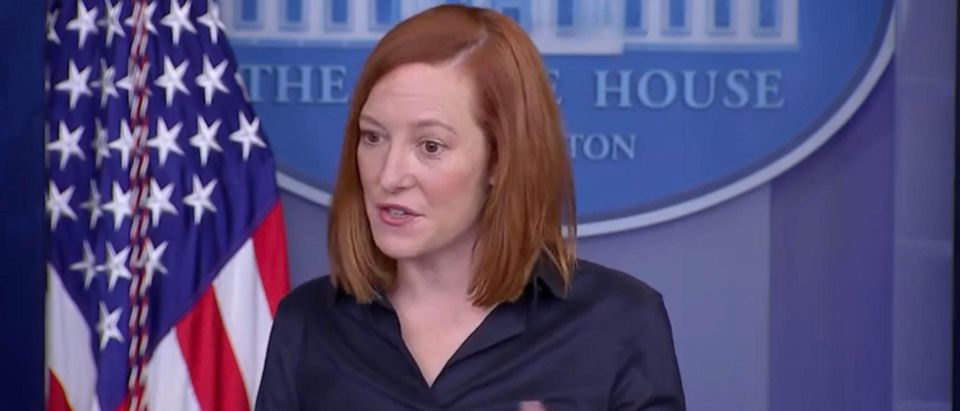President Joe Biden remains “firmly committed” to raising the minimum wage to $15 per hour even after a report from the non-partisan Congressional Budget Office (CBO) said the policy would cost an estimated 1.4 million jobs, White House press secretary Jen Psaki said Monday.
The Biden administration is seeking to include the minimum wage hike in its coronavirus relief package, giving employers until 2025 to raise their wages to $15 an hour. The Monday report from the CBO estimated that the plan would cost 1.4 million jobs but also raise 900,000 Americans above the poverty line. Biden has signaled that his administration may be willing to pass a relief package without the wage hike. (RELATED: POLL: 52% Of Americans Support Convicting Donald Trump)
MINIMUM WAGE: Jen Psaki says, “The President remains firmly committed to raising the minimum wage to $15,” as relief package may not include a wage hike provision.
RELEATED: Biden Predicts $15 Minimum Wage Won’t Be In Relief Bill, Vows Separate Push https://t.co/ezN8gtkn7V pic.twitter.com/FJ0u6rlNn7
— Forbes (@Forbes) February 8, 2021
Psaki told reporters that Biden “remains firmly committed to raising the minimum wage to $15,” but argued the Congressional Parliamentarian has not yet made an official recommendation on the wage hike despite the CBO report.
“I heard about the CBO score as I was walking out here, so I have not spoken to our economic team about that specifically,” she said. “At this point in time it’s still working its way through the process in Congress and the parliamentarian still has to make a determination about what will be in a final package.”
Psaki did not elaborate when reporters pressed her on whether the Biden administration would yield on the wage hike if the parliamentarian recommends its removal from the relief package.
In addition to the jobs lost and decrease in poverty, the CBO report says a wage hike would cause a corresponding rise in the price of general goods and services. The CBO says this cost hike would in turn raise the annual budget deficit by $54 billion.
“Higher prices for goods and services — stemming from the higher wages of workers paid at or near the minimum wage, such as those providing long-term health care — would contribute to increases in federal spending,” the report says.


